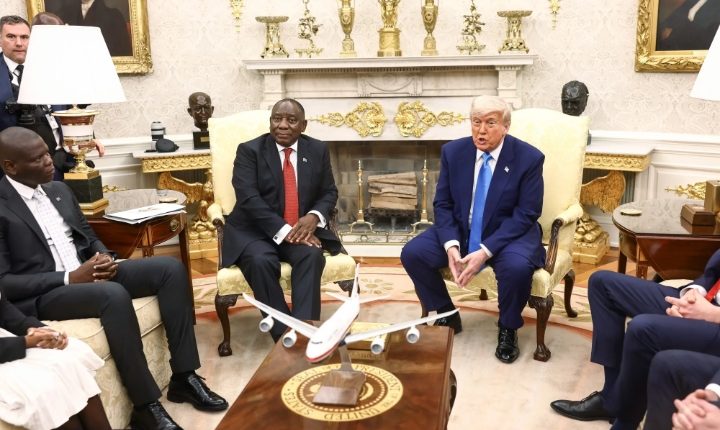By Peter Legacy
Johannesburg, November 1, 2025 — South Africa has strongly criticized reports that the United States government, under President Donald Trump, is prioritizing white Afrikaners in its refugee resettlement program, calling the policy “discriminatory” and “deeply regressive.”
In a statement issued Saturday, South Africa’s Department of International Relations and Cooperation (DIRCO) said it was “disturbed” by Washington’s alleged plan to fast-track refugee applications from white South African farmers, while others fleeing violence and persecution around the world face heightened barriers.
“The South African government rejects any notion that a specific racial group requires preferential refugee consideration,” the statement read. “Such a policy undermines the principles of equality and non-discrimination enshrined in both U.S. and international law.”
The controversy erupted after reports surfaced in several U.S. outlets citing senior administration officials who claimed President Trump had directed immigration authorities to “show compassion” toward white South African farmers, citing concerns about farm attacks and alleged “reverse discrimination” under South Africa’s land reform policies.
Human rights groups and political analysts quickly condemned the move, describing it as a dangerous return to racially biased immigration practices.
“This is not about humanitarian concern; it’s about racial politics,” said Sipho Dlamini, a Johannesburg-based political analyst. “Afrikaners are not a persecuted minority by any recognized international standard. The U.S. is clearly using this to stoke its own culture wars.”
White Afrikaners, descendants of Dutch settlers, make up less than 8% of South Africa’s population. While incidents of farm violence have been documented, government data and independent studies show the trend is not racially targeted but part of broader rural crime challenges.
The White House has not issued an official statement, but a spokesperson for the Department of Homeland Security said the administration “routinely reviews refugee cases involving individuals facing credible threats,” without addressing the reported racial focus.
In Pretoria, the issue has ignited political debate. Opposition parties accused the government of “downplaying legitimate safety concerns,” while ruling party lawmakers warned against allowing foreign powers to “racialize” South Africa’s domestic affairs.
DIRCO said it had summoned the U.S. chargé d’affaires in Pretoria for clarification and reaffirmed South Africa’s commitment to protecting all citizens “regardless of race, ethnicity, or background.”
As global migration policies come under renewed scrutiny, the incident threatens to strain U.S.–South Africa relations — and reignite old wounds over race, privilege, and international perception in post-apartheid society.


